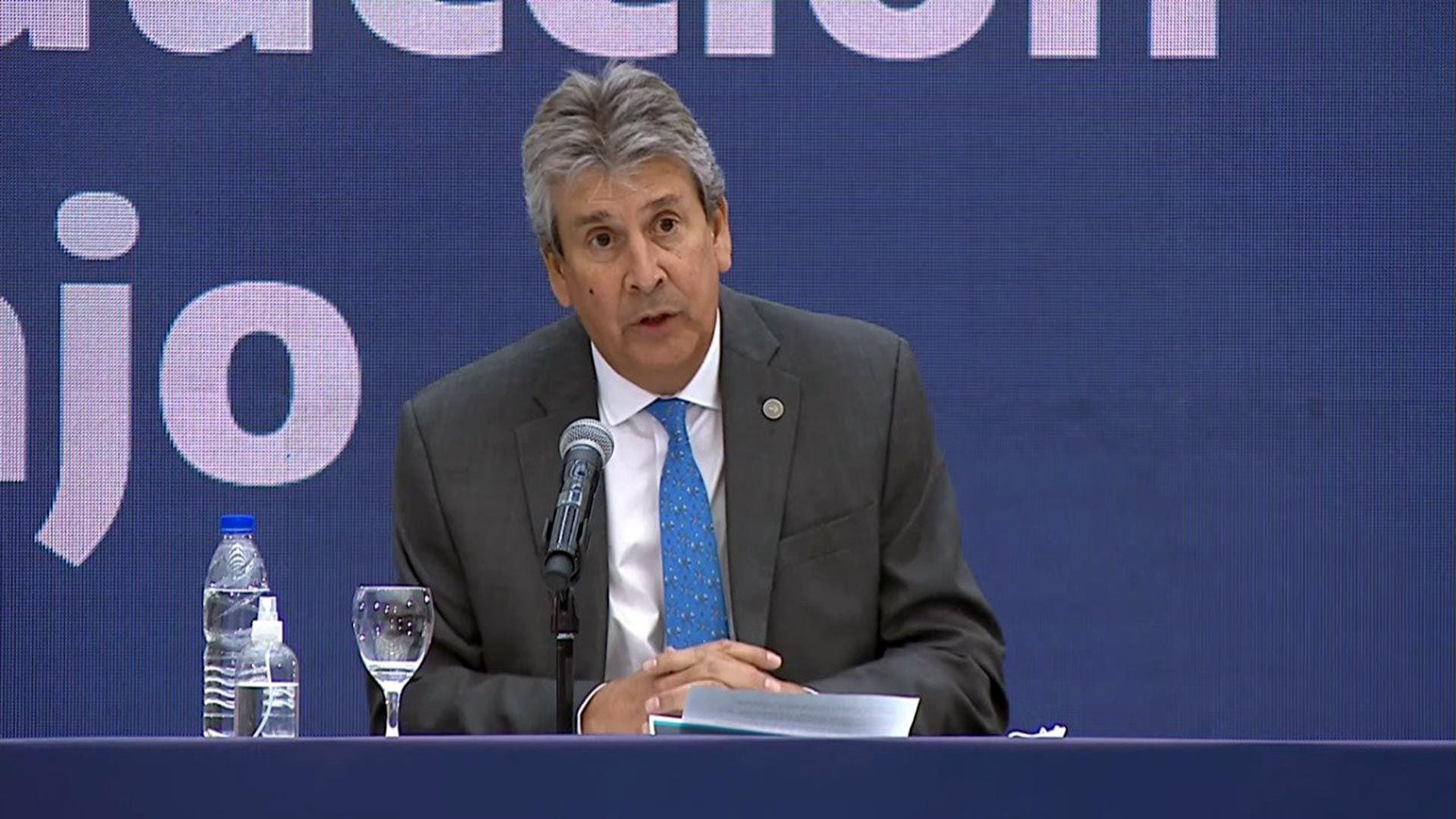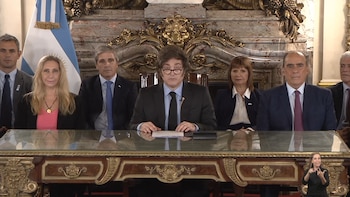
Different sectors linked indirectly to the countryside and agribusiness expressed their rejection of the increase in withholding of soy by-products, with which to finance a subsidy fund for the price of wheat flour, as a result of the increase in cereal prices in the foreign and local markets as a result of the invasion of Russia into Ukraine. Today, at a press conference, the Minister of Agriculture, Julián Domínguez, said that the measure seeks to benefit the consumer and that it will not harm the producer.
The leadership of the Buenos Aires Grain Exchange expressed in a statement its rejection of the measures, which mean an increase in tax pressure and a change in the rules of the game, in the midst of an agricultural campaign in which the lack of rainfall will reduce production volumes. “To cut exports and raise taxes is to curb the dynamics of the main sector that currently provides foreign exchange and generates employment. It is going against what we must discuss in order to supply a world that will require a greater contribution from our country,” they said from the entity chaired by José Martins.
Producing, not taxing anymore
In addition, they added that the war in Europe “places us with the responsibility of producing more and with greater added value to meet those demands. This will generate foreign exchange and of course greater employment among our compatriots.” In this regard, the Buenos Aires Grain Exchange reiterated that the measures of the Government of Alberto Fernández are again transformed into an abrupt change in the rules of the game, which prevent further production, industrialization of raw materials and exports, and then lead to a reactivation of the local economy.
On the other hand, the Association of Small and Medium Milling Industries of the Argentine Republic (APYMIMRA) expressed concern about the creation of the Wheat Price Stabilizing Fund. “It will generate a financial mismatch that puts SMEs at high risk. In the past, there have already been funds and programs for stabilizing the wheat market that have caused distortions in the domestic market and put the SMEs milling sector in check,” said the president of the entity, Oscar Marino, where they also said that they are willing to participate in an agreement table against inflation, and highlighted the words of the Minister of Agriculture, who spoke of giving predictability to the sector.

The entity also stressed that beyond the differences in the implementation of the fund, “the fact is that distortion in the market and damage to SMEs will be inevitable due to the very nature of their operation. It is that these wheat price stabilizing funds generate a subsidized price of the product to be marketed, which in the case takes it back to pre-war values Russia and Ukraine, in order to guarantee the final price of derived products on the Argentinean table. This policy can only be carried out with a compensation mechanism by the State in favor of millers.”
In turn, they raised as a problem that the comptroller of this compensation policy “imposes extensive procedures for the collection of compensation, which obliges millers to finance the subsidized price of their product at costs that do not even cover or sustain the structure of their expenses. The delay and bureaucratization of profit has a highly negative financial impact on our SME companies that do not have the working capital necessary to cope with this reality.”
By way of proposal, the entity was in favor of new technologies, directing subsidies to the population that is really violated, seeking policies of sectoral effort that are reasonable.
The leadership of the countryside
While no communication from the Liaison Table has so far been released regarding the announcements made by the Government to combat inflation, the president of Coninagro, Carlos Iannizzotto, during his visit to the Buenos Aires district of Otamendi met with more than 100 potato producers and authorities of that Federation during his visit to the Buenos Aires district of Otamendi. Nacional, from where he reaffirmed his assurance that “withholdings were not, are not and will never be the way. We don't need 'war on inflation', we call for agreements.”

The leader agreed with the statements of Minister Julián Domínguez who spoke of the importance of providing predictability, something that the entities have spoken in this regard on more than one occasion. “To get ahead we need to join efforts and dialogue. Inflation is combated by generating employment and, above all, by promoting more production in all the country's regional economies,” said Carlos Iannizzotto on his personal Twitter account.
Finally, after news of the increase in withholding of soy by-products, more than fifty National Deputies from Juntos for Change today accompanied the project of Deputy Alejando Cacace (UCR Evolución — San Luis) for Congress to reject Decree 131/22 presented by President Alberto Fernández for which increases the rates of export duties for soybean oil and meal to 33 per cent. In a statement, the deputy promoting the claim explained: “Congress cannot guarantee that the executive branch increases taxes under old rules that have already been declared unconstitutional. The intervention of Congress is necessary and in this case, it is necessary to reject Decree 131/22″.
KEEP READING:
Últimas Noticias
Debanhi Escobar: they secured the motel where she was found lifeless in a cistern
Members of the Specialized Prosecutor's Office in Nuevo León secured the Nueva Castilla Motel as part of the investigations into the case

The oldest person in the world died at the age of 119
Kane Tanaka lived in Japan. She was born six months earlier than George Orwell, the same year that the Wright brothers first flew, and Marie Curie became the first woman to win a Nobel Prize

Macabre find in CDMX: they left a body bagged and tied in a taxi
The body was left in the back seats of the car. It was covered with black bags and tied with industrial tape
The eagles of America will face Manchester City in a duel of legends. Here are the details
The top Mexican football champion will play a match with Pep Guardiola's squad in the Lone Star Cup

Why is it good to bring dogs out to know the world when they are puppies
A so-called protection against the spread of diseases threatens the integral development of dogs




